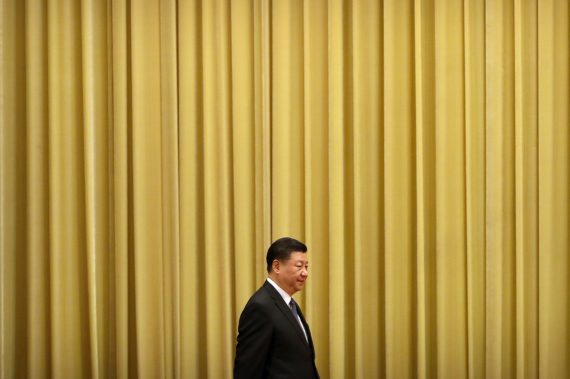The speech of Xi Jinping, the President of China, during the 40th anniversary of China-Taiwan relations was probably the first significant statement of the New Year. It includes two distinct tones such as accounting the peaceful unification of ‘two Chinas’ and an option of using force to gain the sovereignty of Taiwan.
The separation of China and Taiwan is based on the early political struggle and competition between two ideologies in mainland China in the early decades of the 20th century. The communists were considered to be the winners of the competition, the losing side, say, the nationalists, known commonly as the Kuomintang (KMT).
After turbulent decades following the separation in 1949, the U. S. government decided to have a close political relationship with China in 1974. During this period, while China gradually increased its political sovereignty rhetoric upon the Island, the 1992 consensus established the understanding of a One China policy.
One China phenomenon
During the course of this period, the People’s Republic of China (PRC) and the Republic of China (Taiwan) claim distinctively to be the rightful ruler and representative of China.
Since the end of the Cold War era, the unification issue of the two separated Chinas has been one of the most crucial international issues in general. But the tension between both ‘countries’ has been increasing in the last couple of years due to the new dimensions emerging in the region.
The strongest advantage of Taiwan is based on the fact that China is not the old China. It possesses a political ideology that provisions itself with a causal alienation in the eyes of the world community. The Taiwanese cannot be forced against their wish to be in line with the idea of unification
This political phenomenon can be comprehended by taking into consideration two different perspectives. The first one is relevant to the PRC’s approach to proceed unification, either in a peaceful manner or by using military force, which is strongly emphasized as a possibility by Xi Jinping.
The second one is the political stand of the Democratic People’s Party (DPP), the current governing party in Taipei Island since 2016, known as being in favor of independence and general public opinion of the Taiwanese as to whether they should agree upon the issue of unification or maintain the status quo, say, the peaceful separation from mainland China.
‘New China’ needs Taiwan
Though both sides feel to liberate the other on the course of time, there is a gross dispute as to how this will be realized. It can be argued that the Taiwan issue for the PRC’s elite is an indispensable part of founding a ‘New China.’ No doubt that China, under the leadership of Xi Jinping, yearns to fulfill political advancement in the form of unification as a complement to the PRC’s economic advancement in the last couple of decades. If this is not accomplished, then mainland China cannot get rid of the feeling of humiliation in face of the international community.
No doubt that China, under the leadership of Xi Jinping, yearns to fulfill political advancement in the form of unification as a complement to the PRC’s economic advancement in the last couple of decades. If this is not accomplished, then mainland China cannot get rid of the feeling of humiliation in face of the international community.
While Xi Jinping has inferred a military option as a direct threat, which seems to be strategically highlighted so as to force Taiwan to accept unification, it is observed that this approach is a partial reiteration of Mao Zedong’s perspective.
Recommended
In regards to this, Jinping asserts that the Taiwan issue is a national matter and that no third party is allowed to be involved. During Mao’s time, the political propaganda was oriented to the phenomenon to “liberate Taiwan.” Hence, in the current global era, it is not certain whether the same argument is still relevant or not.
Taiwan Consensus
The current president of Taiwan, Tsai Ing-wen, has built her political discourse upon the idea of a “Taiwan Consensus.” By this concept, she explicitly emphasizes that the decision-making process of unification should be based on democratic principles, not ruled only by the leadership cadre of the CCP. This political approach definitely alternates the early agreement upon the status quo or 1992 Consensus.
While Tsai’s approach appears to be exacerbating the Chinese government’s sensitivity on the issue, Xi Jinping has repeatedly sent threatening messages, including a strict reaction of even using military force.
As concrete action, Jinping has initiated certain policies against Taiwan since the beginning of the DPP rule. Owing to this reason, there has been a tense discursive exchange of threats observed in recent years.
In general, Jinping decidedly remolds his policy towards Taiwan in two distinct ways. For instance, Beijing is forcing some countries, in particular smaller nations, to cut their relations with Taiwan; discouraging mainland Chinese citizens from visiting the island; and decreasing its partial economic relationship by reducing orders for agricultural products and initiating military drills in the Strait of Taiwan. There’s no doubt that the final issue is the most significant for both the Taiwanese and the international community.
Beijing is forcing smaller countries to cut their relations with Taiwan, discouraging Chinese people from visiting the island and decreasing its partial economic relationship by reducing orders for agricultural products and initiating military drills in the Strait of Taiwan.
The anniversary speech of Jinping touched upon earlier came just after the local elections held on 24 November, 2018. If the Chinese ruler perceives the local election victory of the opposition, KMT, as a reaction of the Taiwanese electorate to the ruling DPP’s pro-independence tendency, this will cause unintended consequences for Beijing.
The Taiwanese electorate turned to the opposition party due to internal and domestic politics. This result cannot easily be interpreted as a switch of Taiwanese society from democratic rule and freedom to mainland China policies.
A smarter policy needed
China does not want to leave its grip upon the Taipei Island. And it is not deniable that the Taiwan issue for China is an existential for the continuity of the national union.
Hence, the Chinese president should adopt a smarter policy on the unification issue. Though China has been proving to be a global power in terms of economic modernization, say, liberal capitalism, the country is definitely facing an incoherent condition in terms of undemocratic values and human rights abuses, which do not go hand-in-hand with the fundamental aspects of the global economic system.
The strongest advantage of Taiwan is based on the fact that China is not the old China. It possesses a political ideology that provisions itself with a causal alienation in the eyes of the world community. The Taiwanese cannot be forced against their wish to be in line with the idea of unification. As such, it can be argued that the Taiwanese are committed to the established democratic experience, a high degree of awareness of freedom, acquired material wealth and is open to the world society.





